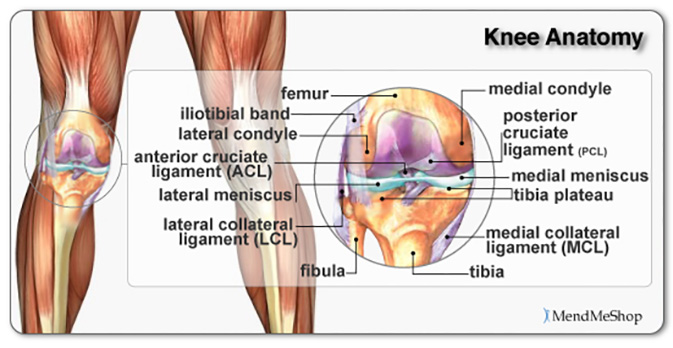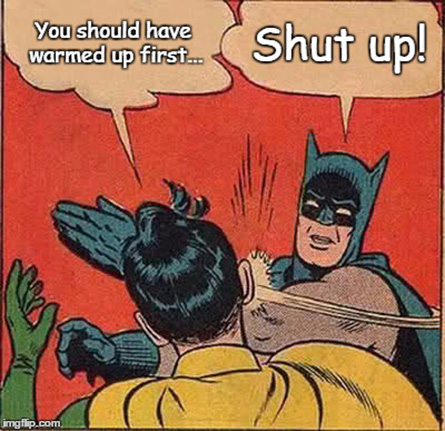I used to be pretty robust. I remember a time when I didn't miss a single basketball game or training session for about 4 years. I felt indestructible. Then one day during a regular basketball fixture, I ruptured my ACL (a ligament in the knee), and I've been fragile ever since, my body constantly letting me down.
I thought I would write a little about the mental side of dealing with injuries. Unfortunately it's something I have a lot of experience in, and they are somewhat inevitable if you take part in sport or obstacle course racing long enough. I'm also suffering with one at the moment :(
Current Injury
I've been training harder than ever the past 6 months for obstacle course racing, though I've been sensible and intelligent with my approach. Very gradually increasing my mileage each week, frequent stretching and mobility exercises, regular ice baths, etc.
It's by no means been plain sailing, as I have had a few overuse related injuries like plantar fasciitis, Achilles pain, strained abs, and strained triceps (as well as the usual cuts and bruises from races, affectionately known as "OCR kisses" by many). However, none of these minor injuries have fully stopped me from training or races, and I was able to manage them effectively.
Infernal Knee
Then last weekend, I returned to basketball for a very light-hearted, low level, muck about as part of my club's end of season party. It was very low intensity, and yet at one point I somehow jerked my knee funny and a jolt of pain shot up the side. I didn't think much of it at the time, and continued playing on.

I've unfortunately became very familiar with the structure of the knee over the years
However, the next day my knee had swollen up, and a small bump had formed on the outside of my knee. I'm yet to receive a proper diagnosis, but I suspect meniscus damage.
Six months of pushing my body through hard training and difficult races: no injuries. One very gentle basketball session: injure my knee again, and now potentially out for weeks. The irony is not lost on me!
Dealing with Injuries
So, dealing with injuries. It's easy to say things like "stay positive", "continue training with what you CAN do", "focus on getting better", and so on. Yes, solid advice, though these almost clichéd responses don't carry much weight when someone is feeling like their world has been turned upside down by inability to do their normal training or sports.
Your family and friends might say to you that "it's only a sport", or "you're not a professional so doesn't really matter". Again, yes, in the grand scheme of things, they're possibly right. However, that's completely missing the point. When you've been training 14hrs a week, working towards a goal or specific event, thinking about it constantly, only then to have it all derailed through injury; it's still devastating.
So my first small bit of advice is that it's ok to be upset and frustrated. You family and friends might not truly grasp what it means to you, but that's no fault of their own, they're only trying to be supportive and offer objective advice.
Injury Grief
For longer term or more serious injuries, it's possible you will find yourself going through the traditional 5 stages of dealing with grief (the Kübler-Ross model):
Denial - Denying the severity of the injury, and trying to resume normal training or events. "The injury isn't too bad, I should be fine to do the race at the weekend"
Anger - Becoming angry and frustrated, and possibly blaming others. "Why did I have to get injured!? Life isn't fair!"
Bargaining - The hope to reduce or fix the injury through negotiation or compromise. For example, paying loads of money for expert consultants or physio with the hope this will solve everything. Or on a more spiritual level, praying that your injury will get better and in return you vow to live a healthier life and be a better person.
Depression - Becoming depressed at the realisation of your injury, and the fact that you can't do your normal training or races. You might feel tired, fed up and not want to do anything.
Acceptance - You finally accept your injury, and start looking ahead to how you are going to rehab and get better.
Getting to Acceptance
I think the main thing to take from this is to accept that you may go through these stages of emotions. Don't try to fight them, instead recognise what and why you are feeling a certain way. The only positive stage that is going to help, and not hinder, your recovery is the Acceptance stage. So the quicker you can get to this point the better; both for yourself and those around you!
In reality of course, unless you're a Zen master, you won't be able to jump straight to Acceptance. Myself, I typically move quickly to Depression, and become a miserable git for many days ("even more so than normal" I hear my wife saying haha).
Try to be mindful of what you are feeling, particularly watching out for Denial. You don't want to prolong your injury or even make things worse by refusing to acknowledge that something is wrong. If you are not sure of the severity of your injury then obviously seek professional medical advice.
Alternative Training
One of the clichéd bits of advice I mentioned before was "continue training with what you CAN do". Although a little clichéd, it is definitely solid advice, and once you have gotten to the Acceptance of your injury then you may be more willing to hear it.
There is no benefit from moping about and dwelling on the training that you can't do any more. All you are achieving is making yourself feel worse, and potentially losing fitness at the same time. Instead focus on what you CAN do, without risking any further injury.
See it as an opportunity to work on any weaknesses or areas you don't normally spend much time on. For example, if you can't run due to injury, then focus more time on upper body or grip strength (both vital for OCR). If you have an upper body injury, then focus more on running or mobility exercises.

Focus on what you CAN work on, e.g. pull ups - a key exercise for OCR.
(Image courtesy of Men's Health)
Look for alternative cardio ideas to maintain your fitness levels. Instead of running, why not use the elliptical machine? Or if you can't weight bear, then incorporate some swimming or rowing.
No matter how injured you are, there is always some alternative training that you could do. Both to keep up your fitness levels, and also relieve some of the frustration of your injury. Channel your anger into something useful!
If you are unsure of what alternative training is suitable for your injury, then seek advice from a professional physio.
Prevention First
Prevention is indeed the best cure. However, say that to someone with a fresh injury and you'll likely get a slap in the face.

Prevention is the best cure for injuries, even if you're Batman
If you're reading this and fortunate to be in good health with no injuries, then please take some time to evaluate your current training regime. Make sure that you are allocating enough training time to exercises that will aid injury prevention, e.g. mobility, stretching and strength work. It's the one area that you don't want to neglect, and yet when we're in good health it's often the first thing to skip or "save time" on.
If you are injured at the moment, you might have skipped over or dismissed this section about prevention. Just make sure to remember it once your current injury has healed!
Closing Thoughts
I hope this has helped anyone who is currently struggling to deal with an injury. It's definitely been a cathartic exercise for me just writing about it. With my current injury I reckon I'm now ready to start looking ahead at what training I CAN currently do; and put myself in the optimum conditions to recovery.
I'll see you on the start line soon.

